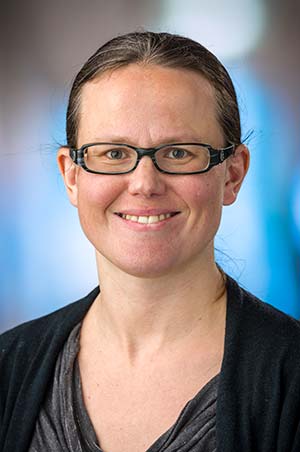Sara Lindstroem, PhD
Associate Professor
Public Health Sciences Division, Fred Hutch
Member
Translational Data Science Integrated Research Center (TDS IRC), Fred Hutch
Dr. Sara Lindstroem is a genetic epidemiologist whose research focuses on identifying genetic and environmental risk factors for common diseases, specifically breast and prostate cancer. She is also interested in statistical methods used in genetic epidemiology, mainly in population-based case-control studies. Dr. Lindstroem studies the shared genetic origin of common cancers such as breast, colorectal, lung, ovarian and prostate tumors. Together, these five cancers represent more than half of all newly diagnosed cancer cases in the U.S. Her goal is to identify global biological mechanisms that underlie the development and progression of these malignancies. She is also interested in the genetics that underlie childhood obesity, breast-tissue composition and venous thromboembolism, or deep-vein blood clots. Dr. Lindstroem co-led a global genome-wide association study that found 72 new genetic risk factors for breast cancer, nearly doubling the number of known genetic variants that influence risk of the disease.
Other Appointments & Affiliations
Associate Professor, Department of Epidemiology, University of WashingtonAssociate Professor, Department of Epidemiology
University of Washington
Education
PhD, Genetic Epidemiology, Umea University, Sweden, 2007
MSc, Engineering Physics, Umea University, 2004
Current Projects
Studying the shared genetic origin of multiple cancer types
Identifying genetic variants associated with breast tissue composition and venous thromboembolism
Studying gene-environment interactions in breast cancer
Identifying genetic variants associated with a range of outcomes in people living with HIV
